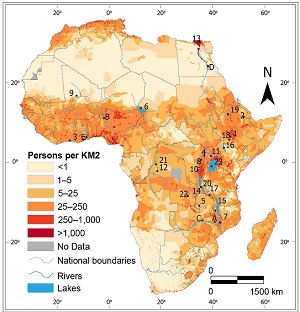AFLANET- African Lakes Network

AFLANET - African Lakes Network
Plot 34A, Gabula Road, Jinja.
P. O. Box 474, Jinja, Uganda
Tel: +256 772 421 094 or +256 706 021 094
Email: secretariat@aflanet.org
URL: www.aflanet.org
Why we exist
The human population in Africa is growing at a very fast rate of ~2.5% per annum and is expected to increase from 1.4 billion in 2021 to 2.5 billion by 2050. By 2021, one fifth of the people in Africa were malnourished and 489 million lived in absolute poverty. Deliberate interventions are required to produce more food, jobs, clean water and other livelihoods if Africa is to advance in SDG goals of zero poverty and hunger by 2030. The highest population density in Africa is along lakes, associated rivers and in their basins. The lakes and their basins are therefore important economic growth zones. The lakes are sources of fish which is a highly nutritious food, employment, income and exports; Are biodiversity hotspots; Modulates local climate; Provide water for domestic and industrial use, hydropower generation, and irrigation; Are used for waste disposal; Are navigation routes, and; Are tourism destinations. The lake basins are important in: Agriculture; Urban and industrial development; Mining, oil and gas.
The resources of the African lakes are diminishing and becoming degraded by a multitude of factors driven by the rapidly increasing human population. These include: Catchment degradation (agriculture, deforestation, wetland degradation, damming, urbanization, mineral exploitation); Nutrient enrichment that alter lake productivity processes; Invasive weeds; Pollutants and contaminants; Climate change; Biodiversity loss; Over-exploitation; Inadequate knowledge and skills; Weak policies and implementation mechanisms, and; Limited and capacity. This is threatening the livelihoods of dependent communities. However, virtually all the lakes lack management plans and a system to prepare and update them, share information, improve skills, and advocate for action for ...sustaining their health and productivity.
The factors influencing the health and productivity of African lakes continue to change and need to be monitored and managed if the lakes are to sustain ecosystem and livelihood services. Most lakes and their basins traverse jurisdictions and collaboration are required in development of harmonized management actions to be implemented at national level. The influencing factors though common among many lakes vary in intensity across lakes depending on local conditions and require specific interventions. This intervention was conceived out of the need for networks and partnerships to build capacity, mobilize, package the information and translate into lake-specific management plans, increase awareness, knowledge and skills, and advocate for actions required to increase the health and productivity of the lakes.